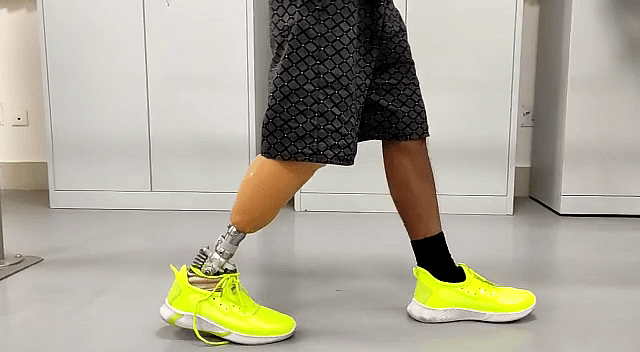
A research team from the Indian Institute of Technology, Guwahati (IITG) developed a prosthetic leg specially designed for Indian conditions which can meet needs such as cross-legged sitting and deep squatting.
The device, backed by Union Ministry of Education and Department of Biotechnology, is also adjustable for different age groups and multiple stages of prosthesis use. The prototypes of the device are currently under trial. It is expected to cost Rs 25,000.
Products available in the markets now are developed with Western technology and ignore Indian locomotion needs, such as cross-legged sitting and exercise postures in Yoga which can be used for rehabilitation.
“The knee joint developed by our team has a spring-assisted deep squat mechanism, which helps to use the Indian toilet system more comfortably. The knee rotating mechanism helps to have cross-legged sitting; the locking mechanism helps to reduce the fear of falling in patients while walking in unknown terrain; adjustable link length in a knee helps to have either more stability or easy flexing depending on age and requirement of the patients. Overall, the knee joint is designed to meet the Indian lifestyle which other products fail to fulfill," Prof. S. Kanagaraj at IIT Guwahati, who led the research team, said.
IITG researchers collaborated with 151 Army Base Hospital, Guwahati, Tolaram Bafna Kamrup District Civil Hospital, Guwahati, Guwahati Neurological Research Centre (GNRC), North Guwahati, and North Eastern Indira Gandhi Regional Institute of Health and Medical Sciences (NEIGHRIMS), Shillong for the project.
"Prosthesis development in India faces many challenges. Highly functional mobility for amputees requires devices with advanced features which are expansive and cannot be afforded by many. Further, the affordable prosthetics that are available in the markets have many functional limitations," IIT Guwahati said in statement.